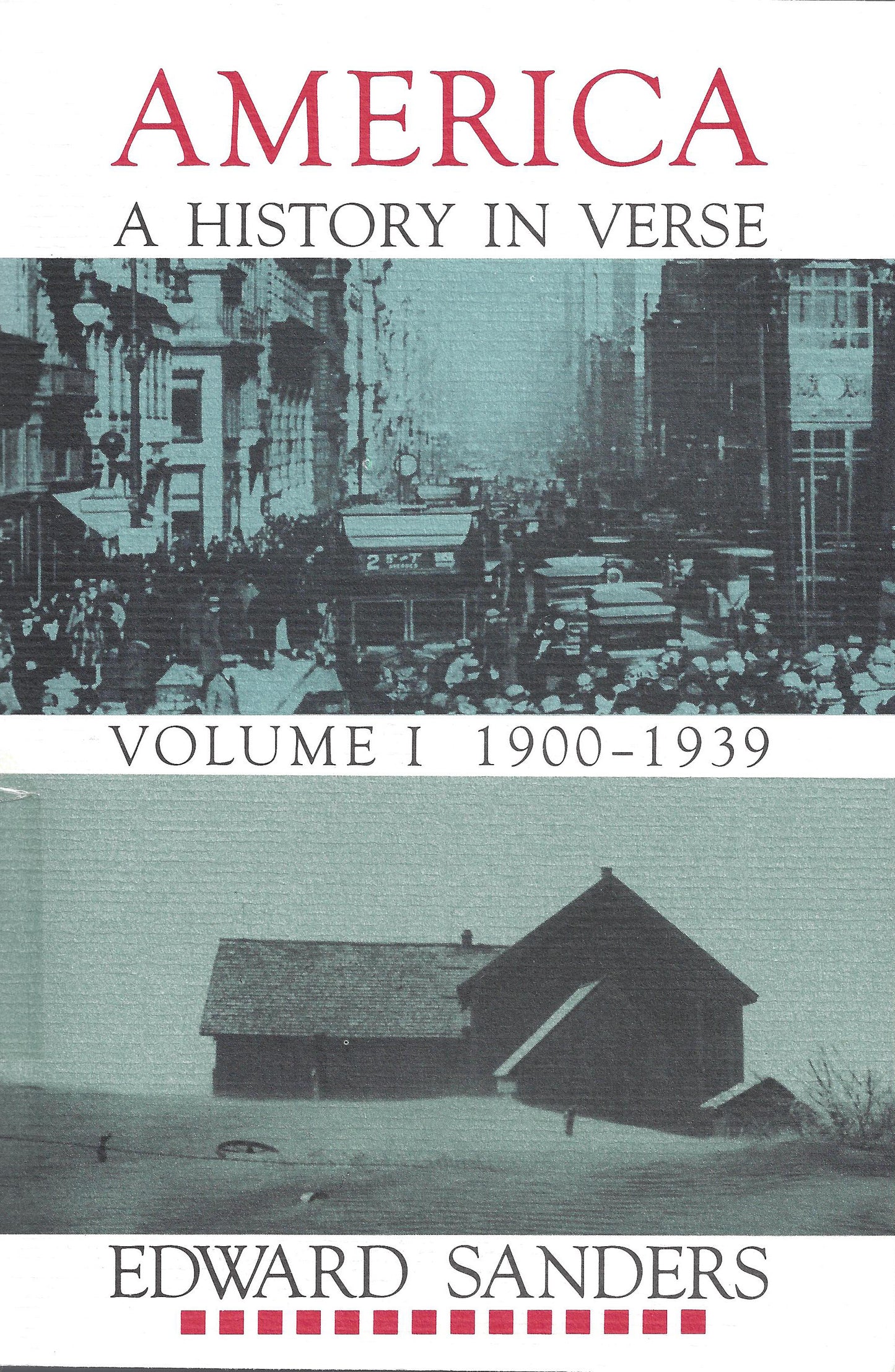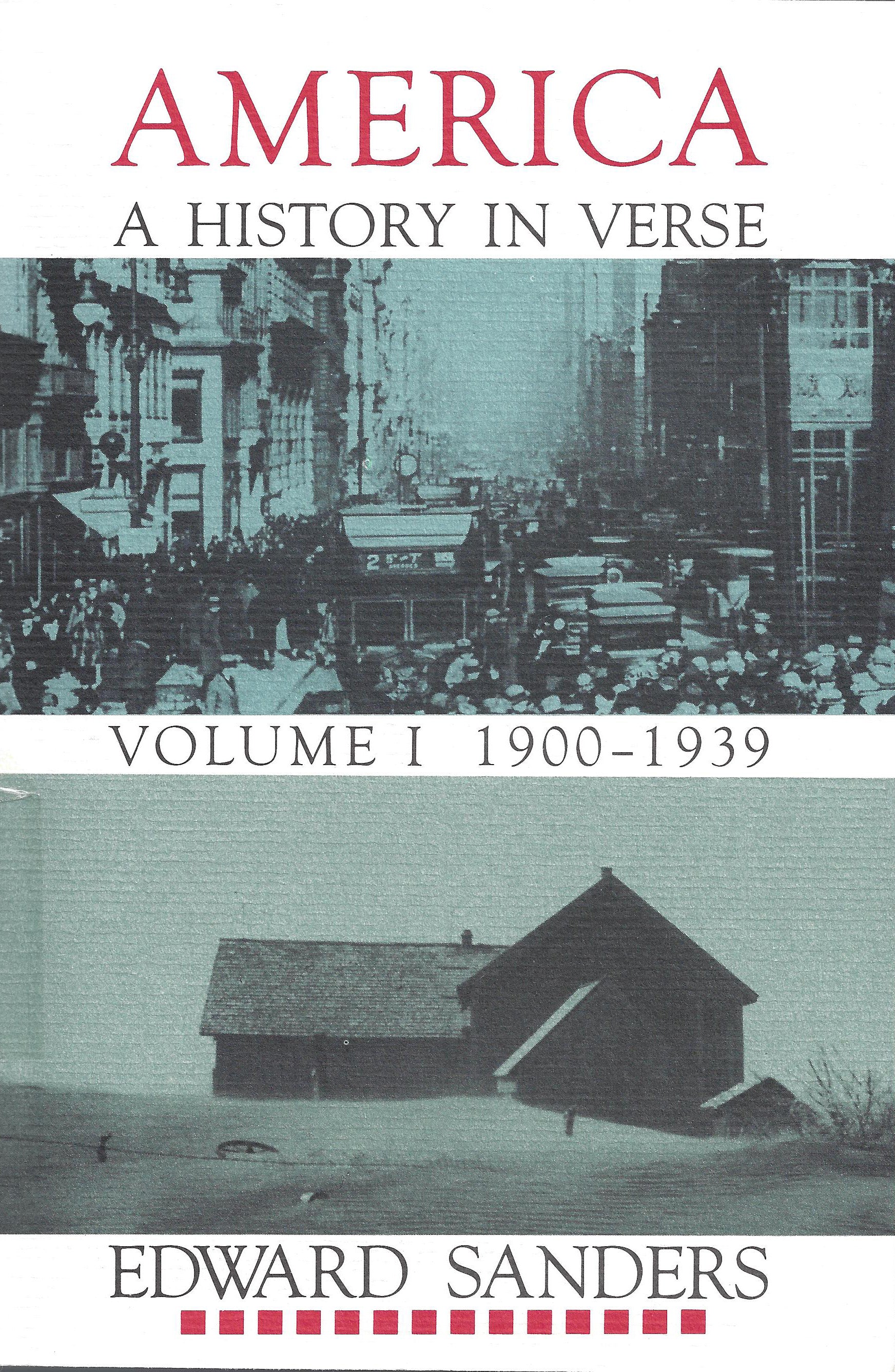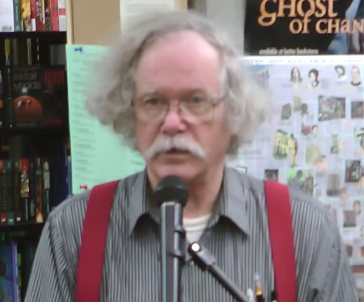
“Seething Nation! Vast & Flowing! Day & Night & Dawn!” Bold, sweeping, investigative, rhapsodic, hilarious, heart-rendering, thought-provoking, Edward Sanders' three-volume, America: A History in Verse uniquely and brilliantly tells "the story of America...a million stranded fabric / woven by billions of hands & minds”. It is by turns angry, wistful, defiant and extremely funny re-inventions of historical and biographical worlds, a highly original mix of chronicle, anecdote, document, reportage, paean and polemic.
Volume 1, 1900-1939 chronicles the birth of the American century through one world war and to the brink of a second. Not since Leaves of Grass has there been such an un-ironic attempt to give voice to “the rhapsody of a great nation / where so many sing without cease / work without halt / shoulder without shudder / to bring the Feather of Justice to every / bell tower, biome & blade of grass / in Graceful America.”
Long may Sanders sing our common song, and long may his America “dwell in peace, freedom & equality / out on its spiraling arm / in the Milky Way.”
Also Available: America: A History in Verse, Volume 2 & America: A History in Verse, Volume 3

